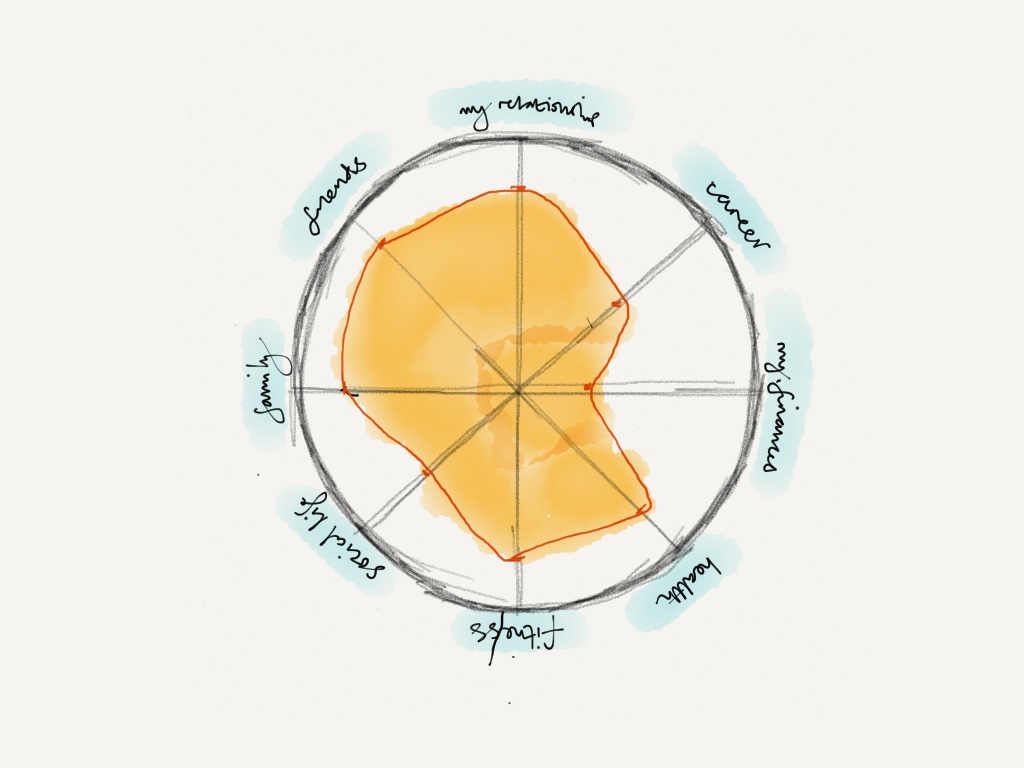…and feel better
When we feel stuck we often can’t see the wood for the trees. This exercise can help you find clarity so you can prioritise where to introduce step-by-step change. When we make changes in just one area of our life there are often unexpected benefits elsewhere.
Find out if your life is in balance:
- draw a wheel with say 6-8 spokes (see Niki’s diagram). Label each spoke with an area of your life that is important to you eg relationship with your partner, family, friends, career, financial security, health & fitness, education, having fun. You can customise your own life-area labels to fit for you.
- look at the life areas and assess whether you are currently getting enough satisfaction from each one. Score each area from 0-10, where 0 is at the hub of the wheel and represents the lowest level of satisfaction and 10, (at the rim of the wheel), is the highest possible level of satisfaction.
- join the levels you’ve marked on your wheel – you’ll get a clear picture of your current levels of contentment and how you feel about different aspects of your life.
Will your wheel roll? If the scores are fairly high eg 7ish or higher and consistent around the wheel then you can imagine your wheel turning smoothly. If your scores are up and down maybe you need to make some changes to get a more even spread of satisfaction in your life.
The wheel gives you an indication of where to introduce balance in your life and where to prioritise change. The next step is to plan change in manageable, achievable steps. You might start most simply by reintroducing input in an overlooked area. In the area where there is too much focus try to think about how you could stop or reduce your input, reschedule, reprioritise or allocate more external resources.

Niki’s wheel definitely won’t roll at the moment. It looks like her career and finances are giving her less satisfaction than she’d like. Niki could help herself by considering how much the two life areas are linked and whether she is tolerating the dissatisfaction for a particular purpose or not. Sometimes this sort of imbalance is necessary to push forward for instance in career or education. Yet it would be good for Niki to know it’s not helpful to prolong any sort of extreme focus that causes satisfaction levels to drop too low. And if there’s no particular reason for staying in a job for low pay that doesn’t motivate her, it might be a good idea for Niki to look at making some changes.
It’s surprisingly common to tolerate aspects of our lives that stress us or make us discontented without questioning the situation. It often comes down to not taking an overview. Once we identify where change would be helpful we can decide to take the first step to making things better.
